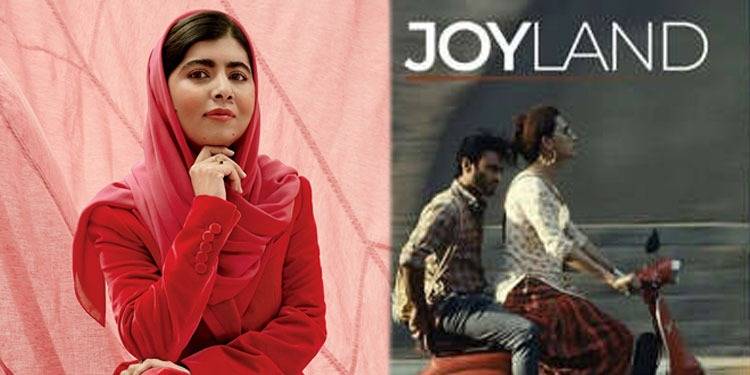
Nobel Laureate Malala Yousafzai believes fantasy is prized over a "look in the mirror" in Pakistan.
Malala presented the observation in an exclusive penned for Variety in connection with the controversy surrounding much-acclaimed Saim Sadiq directorial Joyland. Too often, she said, "art was expected to serve as public relations" in Pakistan. This, Malala said was rooted in bad press the world over.
"A numbness sets in as we collectively decide we would rather believe the fantasy than look in the mirror. When a film like Sadiq’s raises up working class or trans characters, and women struggling to assert themselves against rigid and very real social norms, we turn away," Malala wrote.
In doing so, the youngest nobel laureate said, spectacular Pakistani talent as represented by a film of Joyland's ilk stood rejected. "In doing so, we reject the spectacular talent of Pakistani artists that a film like “Joyland” represents. So many of our best and brightest — from Kumail Nanjiani to Kamila Shamsie to Shahzia Sikander — have found more success in Europe or the US."
Malala noted how Joyland was the first Pakistani film selected for Cannes and how it had left those present at film festivals world over wowed. The recent controversy over the film's release, the nobel laureate, held a small band of critics.
Joyland, Malala clarified, "was not activism posing as art." The film, she said, did not further an argument or deliver a "call to action". "The film treats each character with compassion."
Malala presented the observation in an exclusive penned for Variety in connection with the controversy surrounding much-acclaimed Saim Sadiq directorial Joyland. Too often, she said, "art was expected to serve as public relations" in Pakistan. This, Malala said was rooted in bad press the world over.
"A numbness sets in as we collectively decide we would rather believe the fantasy than look in the mirror. When a film like Sadiq’s raises up working class or trans characters, and women struggling to assert themselves against rigid and very real social norms, we turn away," Malala wrote.
In doing so, the youngest nobel laureate said, spectacular Pakistani talent as represented by a film of Joyland's ilk stood rejected. "In doing so, we reject the spectacular talent of Pakistani artists that a film like “Joyland” represents. So many of our best and brightest — from Kumail Nanjiani to Kamila Shamsie to Shahzia Sikander — have found more success in Europe or the US."
Malala noted how Joyland was the first Pakistani film selected for Cannes and how it had left those present at film festivals world over wowed. The recent controversy over the film's release, the nobel laureate, held a small band of critics.
Joyland, Malala clarified, "was not activism posing as art." The film, she said, did not further an argument or deliver a "call to action". "The film treats each character with compassion."

